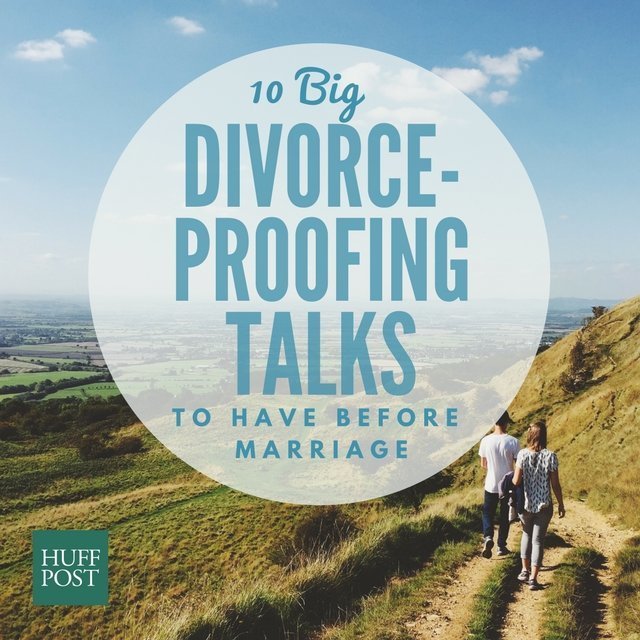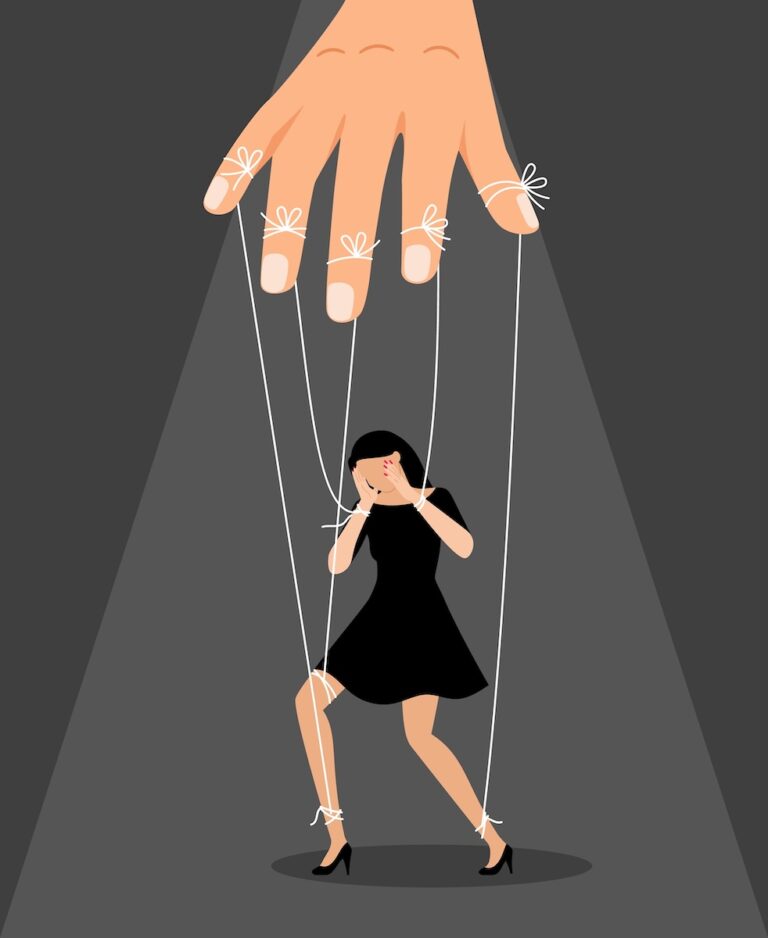21 Stupid Things Couples Do To Mess Up Their Marriages.
Relationship Roulette and Ways Couples Ruin Their Relationships.
Why do people get married? It seems like a strange question, but when I ask people who don’t seem to enjoy being married why they got hitched, their faces go blank, as if it never occurred to most people to think about what marriage is, what it’s for, and why they decided to do it. My brother, who is as far from a relationship savant as they come, says men get married because women pressure them to. Still, I have encountered men who desperately wanted to be married while their partner, whether male or female, was not so much. In a 2019 survey of US adults, the Pew Research Center reported the eight top reasons people get married:
1. Love. 90 percent listed love, whatever that means.
2. Companionship. 66 percent listed companionship. I get this one.
3. Wanted to make a formal commitment. 31 percent listed formal commitment.
4. Wanted to have children someday. 31 percent listed children someday.
5. It made sense financially. 13 percent said it made sense financially.
6. It was convenient. 10 percent said it was convenient. What? Okay, wait, I admit that’s part of the reason I got married.
7. They or their partner were pregnant. 6 percent did because of pregnancy. I thought we were past that, but I know we’re not.
Two-thirds of people surveyed said that living together was a step toward marriage. They did so primarily because of finances and convenience, but it has long been known that the divorce rate is higher for those who lived together before getting married. In a University of Denver study published by the Institue for Family Studies of 1600 Americans who were married for the first time between 2010 and 2019, 34 percent of marriages ended among those who lived together before being engaged, while just 23 percent of marriages ended among couples who waited until after engagement or marriage to move in together.
Marriage is not about good luck. It can and will work if both people are free to be themselves, have an equal voice, have mutual respect in how they treat one another, are mentally and emotionally healthy, and are consistent in mood and emotional output. I often write about how people need to be solid to be good at the sacrifices that marriage always brings. By that, I mean emotionally mature, with firm self-esteem, the ability to care for themselves and set healthy boundaries, and capable of being emotionally connected and close. I had a name for the group of men and women I used to meet in the singles world who were not like that. Partiers, rabble-rousers, dirty old men and women, flakey, shallow, materialistic, ego-maniacs, nit-pickers griping about small things, and overall adult juveniles — I referred to as Ridiculous People. Ridiculous People are not candidates for long-term relationships, though they get married in droves, and I have tried to help them with their marriages for over 20 years. When I am dealing with a male or female who is in their 40s but acting 14 years old emotionally, the only chance they have is to grow up once and for all. It’s a huge hill to climb; it’s well worth it, but the majority won’t do it.
Naughty married people are on the prowl.
When I was single, I sometimes went to a San Antonio professional singles hangout on Thursday nights, which was an upmarket drinking hole. I’d go during happy hour, plop myself at the bar, and see what happened next. One night, I noticed a couple staring at me. The next thing I knew, the husband sidled up to me and asked if I would be interested in taking a trip to Colorado with him and his wife to stay in a house they’d rented. I looked over at his wife, and she waved, nodded, and smiled, letting me know she was in on the deal. My brain short-circuited for a few seconds as what was going on sank in. A couple I had never met was inviting me on a trip.
I asked him what this was about, and he wouldn’t explain, though I felt sure some bad behavior was on tap; perhaps they wanted to date me. Certainly, it involved sex somewhere down the line or … something. Whatever it was, it was weird, and I got the creeps. I shook them off but thought about it later, wondering what got this couple to a place where they would invite a stranger on a mysterious trip. I see many unnecessary, damage-causing situations couples get into, but this was right at the top of the list. They had no idea who I was, and there was no common sense or practicing of boundaries here in any way, not even to protect themselves. Did this couple sit at breakfast one day and say, “Hey, we need to go to a bar and pick up women,” the other person was like, “Great idea, let’s do it!” The odds of anything good coming from an endeavor like this are about nil. I could not imagine a woman would ever say yes to taking such a trip.
Stupid things.
With people like that in mind, and many others I have known, I created a list of stupid things couples do that beg for trouble, though I hate the word stupid. Dr. Laura Schlessinger famously created several lists of stupid things people do and wrote books about them, including Ten Stupid Things Couples Do to Mess Up Their Lives in 2001. (I think she must have been lazy with such a short list because I could go on and on.) I’m no Schlessinger fan and find Dr. Laura’s perspective of harsh and heartless moralizing a huge turn-off most of the time, but for entertainment purposes, her list of ten was stupid secrets, stupid egotism, stupid pettiness, stupid power (and control), and stupid priorities.
She also outlined finding happiness in all the wrong ways, making excuses, untoward liaisons, mismatches, and silly makeups and breakups. I really don’t care for her overuse of the word stupid, by the way. I much prefer the word ridiculous, as it’s not as shaming. Dr. Laura’s perspective and words aside, let’s see if I can present a list with more depth, thought, and experience behind it. The one thing she and I can agree on is that people tend to create problems for themselves unnecessarily. If you’re doing anything on this list, I want you to think long and hard about why. The list includes married and single relationships. Here’s my list:
1. Let’s swing. I see this too frequently, and since the couple who has done this is coming to me because of problems they’ve created, you can assume joining a swingers club didn’t work out well for them. I have heard that some couples can successfully swing without issue and feel it enhances their lives, but I have never met any of them. The reasons my clients tell me they tried this was that their marriages had gotten boring and dull, maybe one of the partners had only had sex with their spouse and had become curious, and by golly, the idea of seeing your spouse get boinked by someone else seemed titillating and exciting, but so is a roller coaster ride, and that probably won’t harm your relationship. Although the couples always insist they begin swinging with agreed-upon boundaries and rules, too many times, one person in the couple stopped following the rules and started a full-blown emotional attachment and began having an affair with one of their swinging partners. If you play with fire, you might burn the town down is the moral of that story.
2. Switching partners, threesomes, and let’s get a girlfriend. Why, people, why? This is the kind of thing that is begging to destroy marriage and friendships. Unfortunately, two of my classmates in graduate school did this, and yes, they were in the Marriage and Family Therapy program and should have known better. While my two classmates listened to lectures with me and others for hours in the evening, their spouses got together and cared for their infants, and well, you know what happened next. My classmates tried to roll with it and started switching partners when the four of them got together. Cutting to the chase, my classmates quickly decided they didn’t want to date each other, so that fizzled, but their spouses divorced them and married one another. Is that spin-off marriage built on a solid foundation? Uh, no.
3. Friends you’re attracted to and “talk to.” Whether you are straight or gay if you are attracted to someone and believe you have the right to hang out with and be friends with them or whomever you choose, think again. I’ve had many clients tell their spouses they have this right, even though it makes their partner uncomfortable and nervous, as it should. I once had a client whose husband sang Christian love duets with another woman at their church during church services. Many of the people in the church assumed they were married by how they acted when together. Hours were spent together rehearsing, and though both of their spouses begged them to stop it, they would not, explaining that they were “serving the church.” Holy Jesus, really? My client and her husband divorced shortly after, and he still sings with his married pretend-spouse years later. That emotional connection must be heroin to those two, but it’s as inappropriate as it gets.
4. G-rated cheating. Hey, we’re married, but if you want to flirt, hit on, and make out with someone else at a party or somewhere else, in front of me or not, it’s perfectly fine. But kissing only! Ahh, the tangled webs some couples weave. Live by the sword, die by the sword. The chances of agreements like this having a good outcome are zilch, which always begs the question of … why?
5. Never being apart. Always together sounds good in a love song, but in practice, it’s usually smothering for at least one person in the couple. When a person in a marriage brags about this being true, it won’t be long after that I discover this person is insecure, jealous, a control freak, and tilting toward abuse. They usually come to therapy to see if they can get me to tell their partner that they should not take business or pleasure trips (or do anything at all without them) because “We hate being apart.” Sure. I know this person wants to keep an eye on their spouse because of their insecurity and trust issues, and not necessarily to be together for the right reasons. When I call them out on it, I will be told I am wrong, they love their partner and control has nothing to do with it, and tada, I get fired. Once that happens, I send energetic waves of hope to their partner being controlled that they might wake up to what’s really going on and learn to set boundaries and get some breathing room. Relationships like that won’t last when the controlled partner gets healthy and starts setting boundaries.
6. Follow the rules. Years ago, I worked with a couple who owned a family business. The business was successful, and the husband was proud that he had bought his wife a beautiful Mercedes convertible as a surprise. She loved it but was having problems because when she went to drive it, he wanted to know where she was going, and if he didn’t like her answer, he would tell her she couldn’t take the new car there. She felt this was unfair and brought him to her next session. I asked him, “Did you buy the car for your wife and give it to her?” Yes, he said. “Is it hers?” Yes, it is, he said. “Then, she may do whatever she wants with it, including selling it, driving it wherever she wants, or pushing it off a cliff.” But I don’t want her to mess up the car, he said. “It’s her car; she can mess it up if she wants.” No one in a couple has the right to set rules that their spouse must live by. Every married couple should understand how they will conduct themselves as married people, but things outside that are negotiated and agreed upon.
7. Expectations. No one can have an expectation of another without the other person’s agreement.
8. Polyamory and open marriage. Please, no. There is not a lot of research yet on how well relationships work when both people are allowed to be in love with numerous others at the same time, but unless each of you is absolutely confident and solid, it is the Russian roulette game of marriage and super high-risk. Open marriage reportedly has a 92 percent failure rate, but I can’t find that research to back it up. Couples can negotiate whatever agreement they want for their marriage, of course, but I personally would never take a risk like this. Anyway, who has time for this foolishness?
9. Having more children than they can afford. Children are lovely, but raising them is hell for most of us as their nature is wild, spontaneous, and chaotic. No other mammal except humans has to put money, much time, and focus into raising their young for more than 20 years, and it’s a long haul to get kids raised and launched. I work with clients often who work and have a handful of children, and they never get a break because they can’t afford help and, sometimes, can’t afford daycare. Many clients have quit their schooling or career because daycare costs more than their salary or they can’t afford it. Marriages can easily break when they are about sacrifice and responsibility, and there is little time for fun, frolic, romance, and just plain old breathing room, peace, and quiet.
I once worked with a couple that was on the brink of divorce; they were young; she had two children from a previous marriage, four in her current one, and was angry her husband had had a vasectomy without telling her. They had other major issues, too, and as we talked about what divorce would look like for them, she had no career and had never worked outside the home. “Can you afford to care for your six children if something happens to your husband or you get divorced?” “No,” she said. “I have to have my husband’s income and support.” I pointed out that he was a hard-working man in a healthy man’s business, working with his hands in an outdoor climate requiring physical exertion daily, and yes, he had a good income, so as long as he remained physically healthy. However, the family’s well-being would be jeopardized if anything happened to him. These situations make me nervous for families because too many of the family’s eggs are in one basket.
“Never have more children than you can afford to care for yourself,” I said. “Sometimes we end up on our own with no help from anyone else, and we all should take that into consideration when we’re choosing how many children to have.” She looked at me blankly. “I never thought of that,” she said. “And I should have.”
10. Valuing biological family over the spouse. Some people don’t grow up emotionally and are enmeshed with their biological family members to an extreme degree. It shows when a person is influenced and perhaps refuses to do what they’d like to do out of fear of what their family might say. I understand that some cultures remain intertwined with their biological families throughout their lives, and that is normal for the culture, but when your spouse feels their thoughts and feelings aren’t as important as your family’s, they feel left behind or not included, which becomes extremely problematic. In a healthy marriage, there is no doubt your spouse’s needs and feelings come first, and you have their back and are loyal if your family causes them any issues. You might want to stay single if you want to be enmeshed with your family at your partner’s expense.
11. Refusing to go to marriage therapy. Seriously, I think before any of us get married, we need to be assured by our partner they’ll be all-in if marriage therapy is needed. I have heard every reason why a person didn’t want to go … What can a person sitting in a chair tell me about anything? They’re just going to beat me up. What’s going on here is not that bad. It’s my spouses’s problem, not mine. My spouse just can’t be happy. Really, people? If your spouse is struggling, run, do not walk to a marriage therapist, and humble yourself to the process. You won’t believe how much you don’t know.
12. Lies and secrets. If you have a secret or mystery life you don’t want your spouse to know about, you have serious problems. One of the most common ones I see is secret credit card debt, which, once discovered, will be processed as financial infidelity. It is terribly hard to rebuild trust in these situations, if it’s possible at all. PS. The truth really will set you and everyone else free.
13. Drama addiction. A healthy relationship doesn’t have drama. It is solid and predictably calm, and both people respect one another. Relationship adrenaline junkies need to be in and out of their relationship and thrive on the push and pull to maintain passion and keep their attention stoked and boredom at bay. You’d be close to right if it sounds like how a married, snarky 14-year-old might act.
14. Shallowness. Lady Gaga wrote an Oscar-winning hit about getting away from the shallow life, and there’s a reason it resonated with millions of people. I have seen clients who worry about their spouse gaining a pound, not working out, not wearing designer clothes, not being rich enough, not driving a certain kind of car, and other “stupid pettiness,” as Dr. Laura would put it. If your ability to be happy with your spouse depends on material and ego-based things like beauty and appearances, then God help us all; you shouldn’t be married. The insatiable ego has destroyed people for an eternity. Kill it and learn to value what matters.
15. I love your potential. I have clients who marry someone who is undeveloped but has big dreams for the future. The person marrying them is excited about their potential, but the potential is all it is until whatever they had hoped to do comes to fruition. If it does. Time and time again, I have seen one spouse counting on that potential only to be sorely disappointed when their partner decided to do something else. One client thought her husband would go to medical school, but after three failed attempts to get in, he decided to go into insurance. She felt duped and misled. People change and grow over their lifespans; things sometimes don’t work out like you thought. if a marriage is to be successful, we must accommodate and be flexible with the many changes our spouses go through and also be aware they may change their minds about what they want to do with their lives. If you are married in your mind to one thing, like your spouse one day going to college, and then they don’t, and you hold that against them, then you may not be cut out for marriage.
16. Refusal to treat addiction. Families are destroyed by addiction all the time. So many times, couples come to see me when one person is obviously an alcoholic, pill popper or has some other addictions, and they want me to help their marriage when I know any effort will be a waste of time until we address the polar bear in the room. Addicts have every excuse for not being able to go to rehab or join a 12-step program in a serious way, meaning attending meetings extremely regularly, like maybe daily, and working the steps with a sponsor. I am among the group of many marriage therapists who will send you away until you acknowledge and deal with the addiction head-on. This stance is symbolic of what can be achieved when a certain kind of person is in denial about their substance abuse: nothing.
17. I like bad boys and girls. Like a moth to a flame, some people are hopelessly attracted to those who will undoubtedly make them miserable, and they marry them. Unhealthy and emotionally immature people are attracted to emotionally immature and unhealthy people, and the best therapist in the world can’t help your marriage unless you grow up first. I have never seen a couple willing to do it. Relationship physics says you can never have a healthy relationship with someone like this. Anyway, bad boys and girls, at their core, don’t like themselves very much, and they don’t trust others. What a terrible recipe for a lifelong relationship.
18. I married my affair partner. I’ve seen couples that had been married to others and then married each other, and it’s never surprising that there are almost always trust issues. Why wouldn’t there be? You both know that when the marriage gets dicey or dull, the other person will cheat, and they will lie about the cheating. Marrying a proven cheater and liar is not the best of ideas, but few people take my wise advice. Years ago, I saw a doctor through his marriage crisis; he and his wife came in, his back was turned on the marriage, and I knew he was having an affair, though he denied it, of course. They had several small children, and he ended up divorcing his wife, and he married his nurse within a year. A year later, the nurse called me because she and her new husband were having problems with their blended families. She had no idea I had worked with him in his previous marriage, and I couldn’t see them for obvious reasons, but I did get the insight that his new marriage, based on lies and deceit, was struggling. I would have predicted it to play out exactly that way.
19. Dating or marrying the ex of your spouse’s new husband or wife. I have seen this scenario more than once, and though I fell on my knees and begged my clients not to date the person, they couldn’t overcome the chemicals that coursed through their brains and did it anyway, creating many unnecessary problems. It usually happens when two betrayed partners begin a friendship during the marriage crisis, comparing notes about their spouse’s lies and cheating, forming a mutually supportive alliance during the crisis and post-divorce months. Bonds are often built through shared bad times. Ask any soldier or person who has been through a grueling situation with another. The recent divorces of former ABC anchors Amy Roback and T.J. Holmes resulted in their exes dating one another, and the same thing happened when Shania Twain’s husband left her for her best friend. All I can say is that these situations create unnecessary problems for the family as a whole, I could actually write an entire blog about it.
20. Marrying someone because you can’t be alone or support yourself. If you want to ensure this doesn’t happen to you, marry someone you know can be alone because they have spent significant time on their own, and choose people with a history of supporting themselves. Marrying someone dependent is a true setup for disaster as it poisons a relationship as one person acts as a host and the other a leech-like parasite, whether aware of it or not. The person in the leech role will resent the host, and the host may not realize they might not have been selected had they been financially unstable or unwilling to support the dependent adult.
21. Allowing yourself to act on physical or emotional attraction. A friend who was having a long-term affair with a married man once told me, “You can’t help who you love.” “Maybe not,” I responded. “But you can control whether or not you act on those feelings.” In my opinion, this is the crux of the problem and how affairs get started. I am married, and I suppose I could form a crush on someone, but the chances of me doing one thing about it would be zero, and I know the feelings would pass just like the clouds in the sky. Married people still feel attracted to others; we certainly are human, but the trick is keeping those things to yourself and not even considering sharing those feelings with the person you fancy or ever acting on them. That is the healthy way to deal with it, ensuring your marital boundaries are solid and impenetrable.
Years ago when I was single, I was extremely attracted to a married person that I had to be around several days and hours a week for several years. I didn’t know how he felt until I was about to depart that situation for good. Days before I left, he confessed he had been in love with me for four years, which was his bad. Still, we never touched or met alone, and nothing romantic happened other than what we each felt internally. Having been single for years at that time, I had long abided by a policy that I would never be involved with a married man, and I never was. He went through a marriage crisis eventually, as he had fallen into an emotional affair (and most likely physical) with someone he worked out with, but after at least a year of uncertainty, he eventually reconciled with his wife. He was a man searching for something, obviously, and when you search, you will find it, as there will always be someone who will step up and avail themselves to an unhappily married person. I am here to tell you that you don’t have to act on your feelings, and they will eventually dissipate.
So often, people tell me they started doing marriage-destructive things out of boredom and a need for excitement. I don’t take issue with those types of needs, but I have a problem finding high-risk solutions to the needs that are likely to hurt yourself or others. Humans can raise the level of their functioning, and how we conduct ourselves, I am convinced we can. It must start with each of us as individuals. We can be the ones who say no and who refuse to act on a feeling or desire that might harm us or others To be a married person, we must evaluate our readiness for a committed, happy life with someone else and ask ourselves honestly if we are fully prepared mentally, emotionally, and integrity-wise to be half of a

strong relationship. Are we the kind of people who will take personal responsibility for our decisions and choices and hold up our end of doing what it takes to make a long-term relationship work?
I know a gay couple who have been together for over 40 years. For most of those years, they had to hide the relationship from people and live with the reality that they couldn’t have the rights heterosexual married couples had. Of course, they couldn’t get legally married until the Supreme Court finally said they could in 2015. I asked them what kept them together all those years when they could have easily parted ways many times.
“We made a conscious decision that we were going to do this,” said one of them. “We agreed to do what it took to spend our whole life together. It was a decision.”
I liked that.
Relationship issues come from not being mature enough to stick through tough things and choosing the wrong partners for the wrong reasons. Ask any divorced person. They will tell you the mistakes they made in choosing the mate they married and may be able to tell you they realize now they had no idea what was involved in having a healthy marriage. It’s a lot. But integrity rules in good relationships, and if you don’t have it, or your partner doesn’t, or you like to take huge risks with your relationship, then all bets are off on whether you’ll even make it past 5 years.
If you enjoyed this, you might enjoy: https://marriagecrisismanager.com/45-things-to-ask-before-you-get-married/
Have a question? If you have a subject, you’d like to see me write about or a situation you might want to present that I could discuss in a blog, please email me at [email protected].
We’ve got lots of news and exciting things going on in the relationship realm … so I’m preparing to send a regular newsletter with the best relationship advice on the planet. To get on my email list, click here.
Becky Whetstone, Ph.D., is a licensed Marriage and Family Therapist in Arkansas and Texas* and is known as America’s Marriage Crisis Manager®. She is a former features writer and columnist for the San Antonio Express-News and has worked with thousands of couples to save their marriages. She can work with you, too, as a life coach if you’re not in Texas or Arkansas. She is also co-host of the YouTube Call Your Mother Relationship Show and has a telehealth private practice as a therapist and life coach via Zoom. To contact her, check out www.DoctorBecky.com and www.MarriageCrisisManager.com. Also, here is how to find her work on the Huffington Post. Don’t forget to follow her on Medium so you don’t miss a thing!
For licensure verification, find Becky Whetstone Cheairs.







